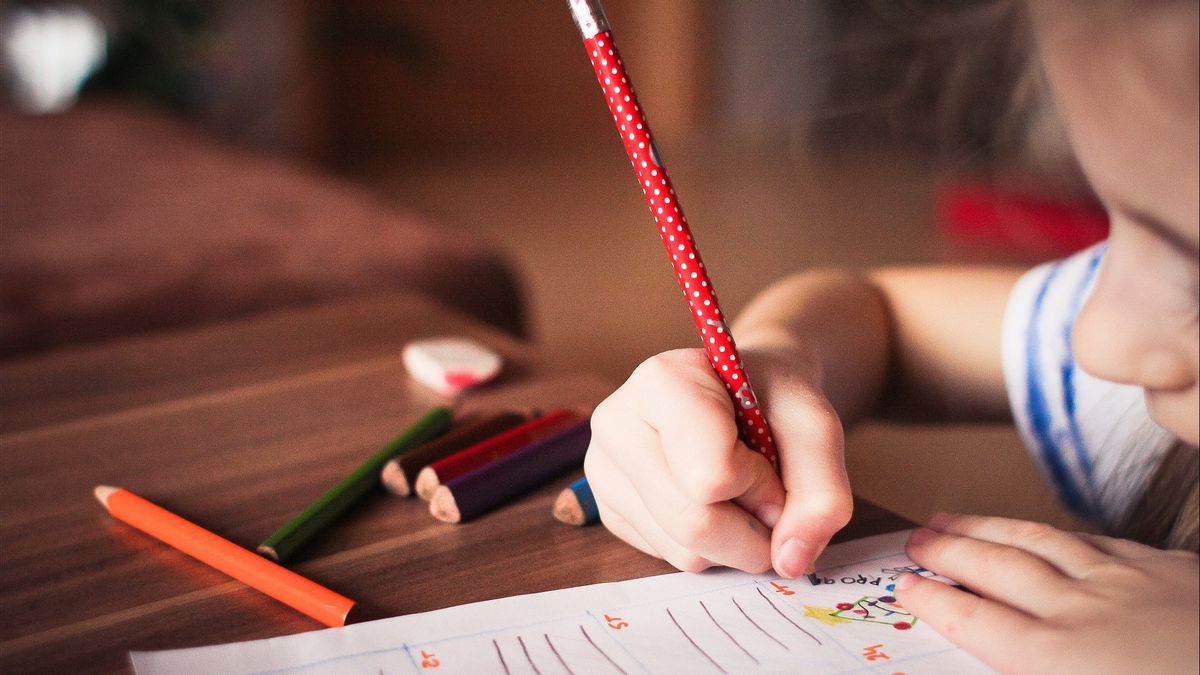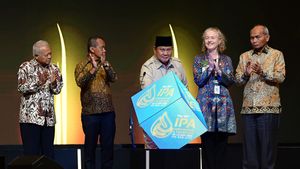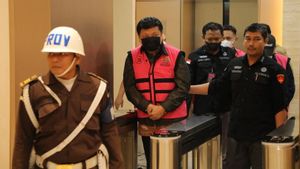JAKARTA - Schools in the area of the Implementation of Community Activity Restrictions (PPKM) Level 1 to Level 3 are allowed to carry out limited Face-to-face Learning (PTM). This policy refers to the Instructions of the Minister of Home Affairs (Mendagri) Numbers 30, 31, and 32 of 2021.
"Inmendagri 30, 31, 32 states that areas entering level 1-3 are allowed to open face-to-face learning and the Ministry of Home Affairs does not limit the age of students," said the Director General of Early Childhood Education in Elementary and Secondary Education (Paud Dikdasmen) of the Ministry of Education, Culture, Research and Technology (Kemendikbudristek). ) Jumeri which was broadcast on the Indonesian Ministry of Education and Culture's YouTube, Thursday, August 12.
Not only that, there is another reference, namely the Joint Policy Letter (SKB) of the four ministers issued on March 30, which is still valid today. In the letter, it is stated that if teachers and other education personnel have received the COVID-19 vaccine, they are required to provide limited face-to-face contact.
However, this option will be decided by the parents of the students because they are the ones who know the best about their children's condition.
"The choice of whether students study at school, face-to-face learning or stay at home that determines is their parents," said Jumeri.
Even so, he reminded that for PAUD the maximum number of students attending was only 33 percent of class capacity. "This means that PAUD children are allowed to have limited PTM, both those under 12 years old, are allowed," he said.
In addition, schools must also prepare all the requirements and needs for the implementation of limited PTM including ensuring that health protocols to prevent the transmission of COVID-19 can be met.
Jumeri said that this limited PTM must be done in order to prevent learning loss that could have an impact on the future of Indonesian children. Moreover, so far Distance Learning (PJJ) is considered ineffective because many students find it difficult and not optimal in absorbing knowledge.
PJJ, he said, has a number of problems including not all students have the tools to learn to the limitations of the teachers. This is what is feared to cause learning loss so that face-to-face learning must be carried out even though it is limited due to the COVID-19 pandemic.
"This learning loss has an impact on children's intellectual abilities and then life skills which have an impact on their income while working. Due to the low competence of our children, children's abilities are not appreciated and this according to international calculations of losses can reach Rp. 10 trillion dollars," he said. .
"And this is an extraordinary amount if the learning loss is maintained," added Jumeri.
Not only learning loss, there are a number of other things that can threaten children's learning activities at home. Including physical, sexual violence, to quitting school to find money to help his parents who were affected by the pandemic.
"We have to end this, we relax for a normal learning process," he concluded.
The English, Chinese, Japanese, Arabic, and French versions are automatically generated by the AI. So there may still be inaccuracies in translating, please always see Indonesian as our main language. (system supported by DigitalSiber.id)













